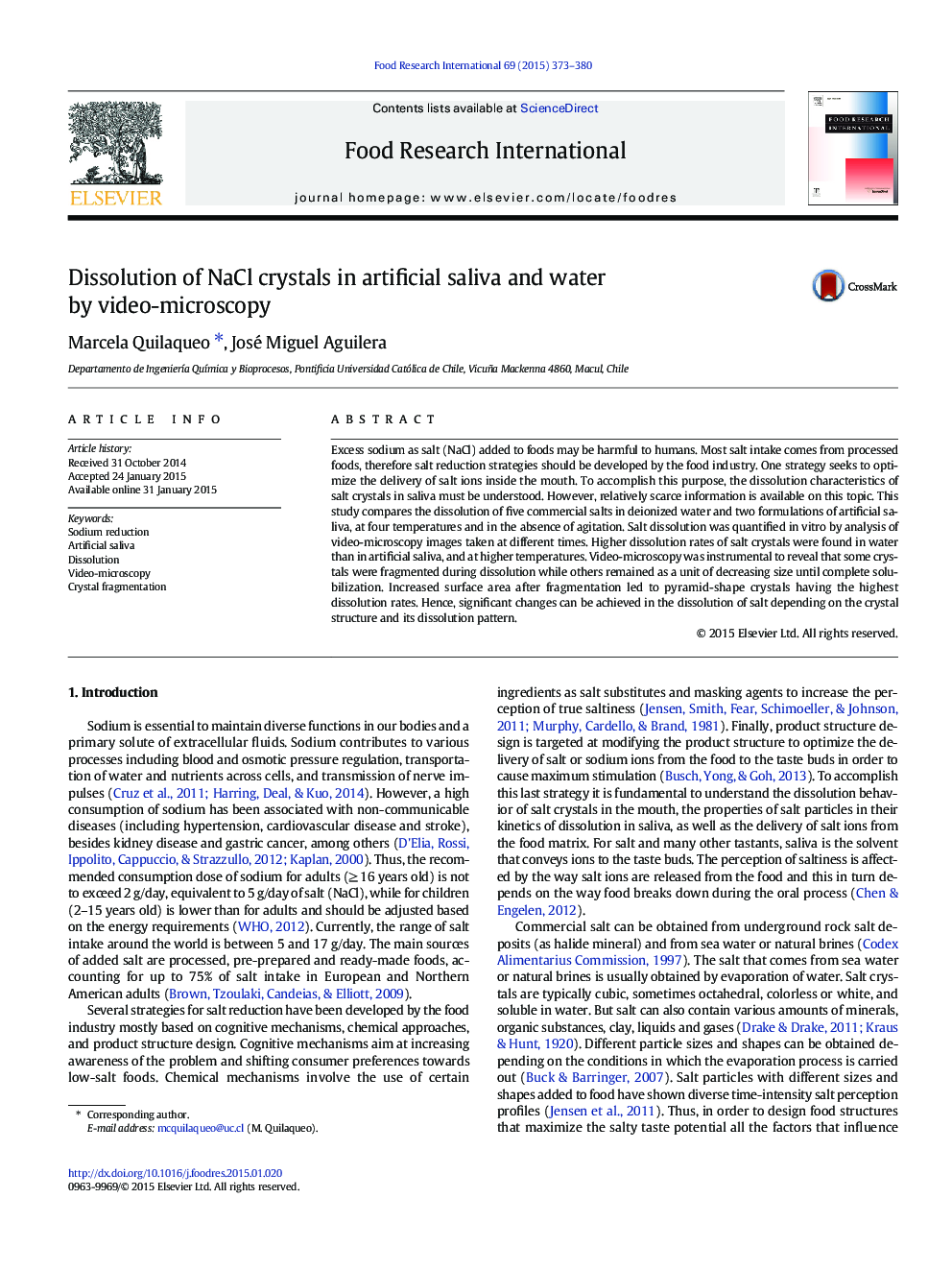| کد مقاله | کد نشریه | سال انتشار | مقاله انگلیسی | نسخه تمام متن |
|---|---|---|---|---|
| 6395655 | 1628477 | 2015 | 8 صفحه PDF | دانلود رایگان |

- Video-microscopy was a useful method to assess dissolution of salt crystals.
- Salt dissolution rate depends on crystal morphology.
- Fragmentation of crystals allows increase of the dissolution rate.
Excess sodium as salt (NaCl) added to foods may be harmful to humans. Most salt intake comes from processed foods, therefore salt reduction strategies should be developed by the food industry. One strategy seeks to optimize the delivery of salt ions inside the mouth. To accomplish this purpose, the dissolution characteristics of salt crystals in saliva must be understood. However, relatively scarce information is available on this topic. This study compares the dissolution of five commercial salts in deionized water and two formulations of artificial saliva, at four temperatures and in the absence of agitation. Salt dissolution was quantified in vitro by analysis of video-microscopy images taken at different times. Higher dissolution rates of salt crystals were found in water than in artificial saliva, and at higher temperatures. Video-microscopy was instrumental to reveal that some crystals were fragmented during dissolution while others remained as a unit of decreasing size until complete solubilization. Increased surface area after fragmentation led to pyramid-shape crystals having the highest dissolution rates. Hence, significant changes can be achieved in the dissolution of salt depending on the crystal structure and its dissolution pattern.
Journal: Food Research International - Volume 69, March 2015, Pages 373-380